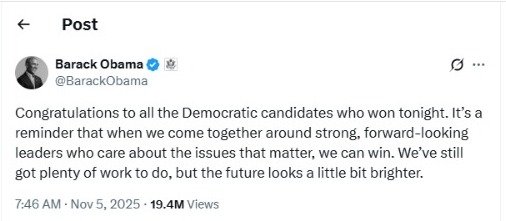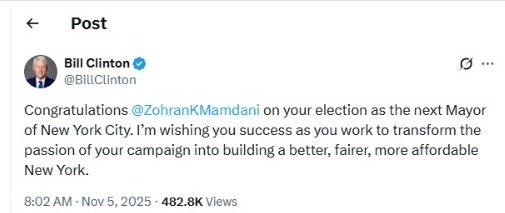WEB DESK: Zohran Mamdani has been elected mayor of New York City, marking a remarkable political rise for the 34-year-old state legislator. His victory positions him as the city’s most progressive mayor in decades.
In a significant win for the Democratic Party’s progressive faction, Mamdani triumphed over former governor Andrew Cuomo and Republican Curtis Sliwa. He now faces the challenge of governing America’s largest city and delivering on a platform of bold and, according to critics, overly ambitious promises.
This marks the second time Mamdani, a Democratic Assembly member, has defeated Cuomo, who stepped down as governor after facing sexual harassment allegations, in a high-profile New York City race.
With this historic win, Mamdani becomes the city’s first Muslim mayor, the first of South Asian descent, and the first mayor born in Africa. Additionally, he will be New York City’s youngest mayor in over a century when he assumes office on January 1.
His rise highlights a growing movement within the Democratic Party to prioritize progressive candidates over centrist options, signaling a shift in strategy to energize its base rather than courting swing voters who have drifted from the party.
The win has drawn criticism from national Republicans, including former President Donald Trump, who have cast Mamdani as emblematic of what they describe as the Democrats’ increasingly radical agenda.
This year’s race saw voter turnout reach its highest level for a mayoral election in over 50 years, with more than two million ballots cast, according to the city’s Board of Elections.
During this time, Mamdani received well-wishes from political figures such as former presidents Bill Clinton and Barack Obama.


Despite early criticisms regarding his limited political experience, Mamdani now faces the immediate task of assembling his administration and crafting a strategy to implement the transformative yet divisive policies that spearheaded his campaign.
At the heart of his victory was an optimistic vision for New York City and a commitment to addressing issues affecting its middle- and lower-income communities.



